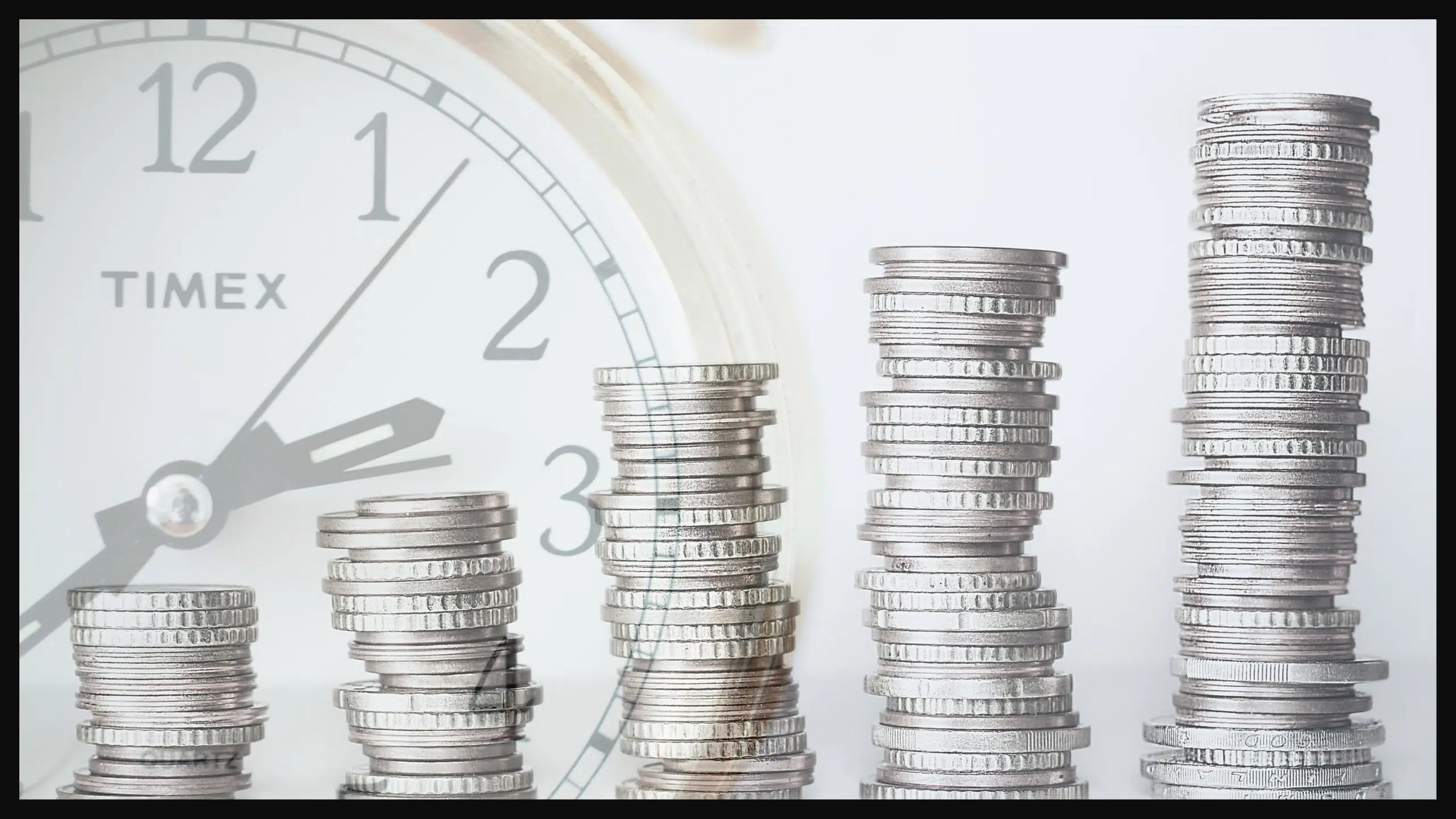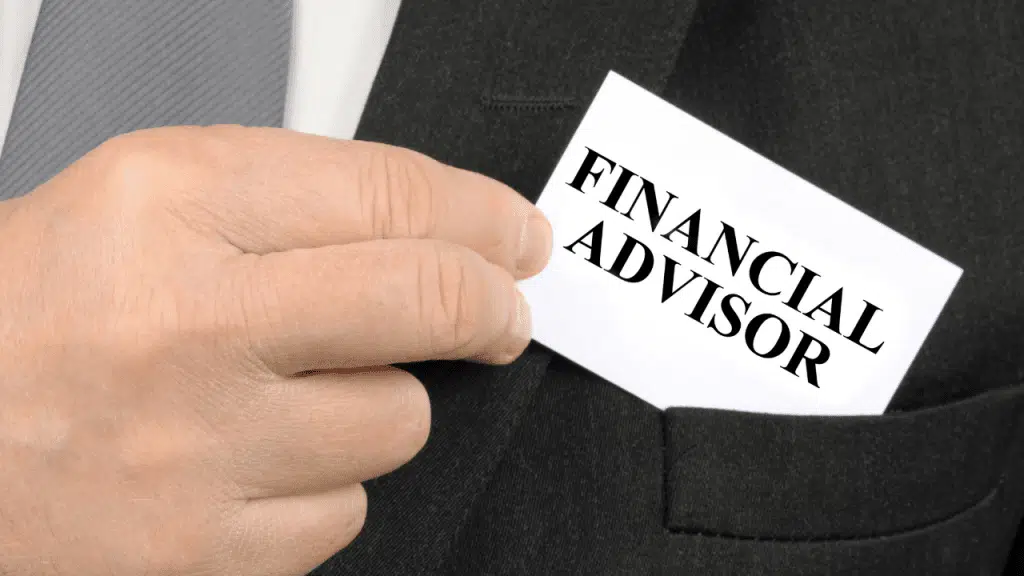Many people believe that the best time for investments is when you are older, but this is not always true.
Before you invest even $1 make sure to read and understand what you’re investing in. Simply because everyone else is doing it does not mean it’s the right investment for you. Take inventory of your personal financial situation and make a level-headed sober decision when you are making financial decisions. Remember, there is no free money.
There are a lot of great investment opportunities that young investors can take advantage of in their 20's. In this blog post, we will discuss some examples as well as why it would be best to start investing now rather than later.
1. Invest in Your Retirement Account
Your 401(k) or any other retirement account is one of the best places for your money to be invested early on. Having a tax-advantaged retirement account will not only help with paying less in taxes, but it can also help with placing funds in your retirement account and building retirement savings. Some even allow the earnings to grow tax-free when you withdraw them at retirement age.
Young adults should begin saving at least 10-15% of their gross income to put towards a healthy retirement plan.
If a 401(k) or an employer-sponsored retirement plan isn't an option, consider investing in a Roth IRA or Traditional individual retirement account (IRS). A Roth IRA is best if you believe your income will go up over time, while a traditional IRA is best for those who expect their earnings to be stagnant.
Retirement planning is an important part of the investing process for young investors. It’s beneficial to set yourself up with retirement accounts so that you will have most or all of your living expenses covered by your retirement plan and savings accounts in your golden years.
2. Become Comfortable With Taking Risks
Investing can be a scary process, but if you are prepared to take risks, it is probably going to pay off over the long term.
Begin investing in your 20s and with the different asset classes even with little money. Each specific investment is different in its own way. You can consider real estate investment trusts (REITs), an index fund or an individual stock. There are also non-traditional ways to accumulate retirement savings like peer-to-peer lending. There are so many different ways to begin investing in your 20s.
The next step after becoming comfortable with taking risks is learning how to minimize the associated risk. This is called mitigating risk. You may want to consider spreading out investments across different companies so that one does poorly and won't affect you drastically if one asset class goes down. One of the best financial decisions you can make is to diversify your money.
Ready to make your first budget?
Enter your email and get the free template
Finally, it’s always good to have some cash ready to go in case you have unexpected expenses or find a really good deal and need to come up with a down payment.
3. Hire a Financial Planner to Help Manage Your Money
Once you have started making investment decisions, it may be a good idea to hire a certified financial planner to hear different investment ideas and understand the tax benefit and income limits of each.
While you are in your 20's, the investment opportunities are likely different from what they would be later on in life since it is prudent to change your investments with age depending on how much risk is involved.
A financial advisor could provide investment advice about which investment opportunities will work best for you as a young investor at certain points of your life so that any potential mistakes can be minimized or avoided altogether.
For example, if an opportunity looks great but there is not enough information available because it hasn't been around long enough, this should send off red flags and indicate whether or not the investment might just end up being nothing more than a scam. Knowing your risk tolerance before you start investing is smart.
How I make $11,000 per year renting out my spare rooms?
Get access to my FREE guide now.
Furthermore, financial advisors can help you determine which investment ideas are most suitable for your risk tolerance, investment horizon and investment goals. Like index funds over mutual funds. Or funding your emergency fund before adding anything to your brokerage account.
Remember though, past performance is not indicative of future earnings. Make sure to ask about the management fees associated with any investment accounts you place with them.
4. Increase How Much You're Putting Into Savings Incrementally
If you are already putting some money away, be sure to keep it up! By increasing your investment amount incrementally over the years, you will become more comfortable with saving more and more. A retirement savings account is built up over years, no months.
For example, if you normally save $100 per month and increase that by only $20 or so every twice a year, each time becomes less daunting than before. If on the other hand, you were to try saving $500 per month in your investment account right off the bat, there's a good chance that may not stick because it happens all at once.
Because you’re investing in your 20s you are on the right track. Don’t expect to have a fully funded investment account the first year. Building a retirement plan that gives you investment earnings will take some time. Be patient with yourself. The stock market will be around for a long time.
Start by investing your money into something you might not typically invest it into, then work to diversify as much as possible over time. For example, if you tend to use investment vehicles like a traditional IRA while saving for retirement, take a chance with stocks or even real estate investment trusts (REITs). Remember to do thorough research and understand the best investments to make in your 20 s.
It is also advisable to invest a certain amount into an emergency fund so that if anything happens with other investments or your income, you will have something to fall back on. A good rule is to put a certain percentage of your paycheck into an emergency fund until you’ve reached 3-6 months of living expenses.
5. Determine Your Investment Goals
While this may seem like a no-brainer, it is important to be able to do this before making investment decisions.
If you have determined that investing in stocks will help your investment portfolio grow faster than other investment vehicles, then determine how much of the investment portfolio you want those types of investments to make up.
In addition, while saving for retirement consider buying some dividend-paying stocks or even finding out if there are any types of lesser-known companies who pay dividends regularly. Especially if the stock price has gone down recently you may want to buy the dip at the same time everyone is scared and taking money out of the stock market.
6. Keep Your Short Term Savings Easily Accessible
When you are just starting with your retirement plan, likely, your investment options will not be able to provide for any type of income stream right away.
Because of this, keep some emergency funds in a savings account so that if something comes up unexpectedly, at least there's enough money to get by without having to take on more debt. Make investing in your 20s a positive learning experience. Don’t invest more money than you can afford to lose. Keep less money in your company-sponsored retirement plan and more in your savings account.
7. Make Sure All Debt Is Paid Off
Before you consider any investment opportunities, make sure that all of your consumer debt is paid off – especially if it's costing you more than 15% interest on it. This way, the money freed up from paying these debts can go towards some type of investment vehicle. Make sure you are paying more than the minimum balance every month so that you do not fall into a debt cycle.
Even though several options will provide for an income stream at a later date, most likely this won't be enough to cover past due bills and other needs right away.
If this does continue into next year or even beyond then don't worry about starting over with investment opportunities until everything else is taken care of first.
After all, having too many things going on at once could cause bad decisions when investing in stocks as well as not being able to properly monitor investment options when they do come up in the future.
8. Do Not Try to Beat the Market
When investment vehicles are initially purchased, many times people will try to beat the market. For example, if they see that a particular investment is doing well then instead of buying into it at that time, they'll wait until it goes down in price so that – theoretically- this should provide for even more gains than what's already been made.
However, when trying to outsmart the system like this there need to be two things working together: luck and timing.
Without either one or both of these elements being present all you can hope for is getting lucky enough on your investments so that unfortunately other opportunities might not come up due to bad timing while waiting around for just the right investment vehicle.
Keep reading: Pros and Cons of Investing in Stocks
9. Buy a Home and Rent Out Any Extra Rooms
For those who can purchase their own home, consider buying one that is large enough for you and then renting out any extra rooms. This way, your investment will pay itself off over time and you’ll have a source of passive income.
Renting out rooms in your home will also give you more cash to take a risk you wouldn’t normally take and flexibility. This is not one of those short-term investments that you can stop with one click. It takes a certain amount of work in the beginning. You’ll need to have some money invested in your house.
Real estate investments with renting out are how I am on my way to financial freedom. It’s also worth noting that there is a huge difference between renting out individual rooms and a whole house.
Renting out individual rooms within a piece of real estate can be more profitable even though it requires you to actively manage the dynamic between roommates. You can charge a different amount per room and can end up with more of a profit at the end of the month than if you rented the whole house.
It’s not free money, there is still a lot of work that goes into it, but it will give you more of an income stream to place into other investments.
Keep reading: How I Make $11,100 Per Year Renting Out Rooms: 7 Step Guide
10. Do Not Use Margin Unless You Know How to Manage It Well
Do not use margin unless you know how to manage this well. In other words, never buy on credit and then have the investment pay for it because if something goes wrong many times there's no way of getting money back from your investment – especially if it is paid off right away by a third party even though owed to another creditor which did extend a line of credit to invest.
This can be very dangerous so always keep that in mind before making any decisions about investing or doing anything else related when using margin. Just like most things, only risk what you're willing to lose since these types of situations can quickly spiral out of control.
11. Invest in Tangible Assets
While investing in places like the stock market can be beneficial, consider investing in tangible assets such as real estate since this is something that you can see and feel on a day-to-day basis.
Even though it might not seem like much at first ( especially if the house isn't very big), there should be some type of return on investment each month after all expenses have been paid – including property taxes as well as utilities since these would already be included in the rent price per room.
Plus, make sure that anyone living there has renter's insurance.
Gold and Silver are also great investments to make. I use gold and silver as a hedge against inflation not for price appreciation.
Related reading: Gold ETF VS Gold Coins | Which Gold is Best to Own?
12. Don't Put All of Your Eggs in One Basket
When investing money, try not to put all your eggs in one basket.
Instead of having $100 invested into just one type of investment vehicle (or company) split this evenly across four different types – even better would be six or eight since then each investment won't feel like such a big loss if something goes wrong. This is diversification and it's recommended for most people.
13. Consider Investing in a Health Savings Account
A Health Savings Account (HSA) is a great investment because it can be used tax-free to pay for medical expenses. Plus, if you're lucky enough to have a company that offers matching funds this will essentially double the amount of money being put into an investment vehicle – which is why it's always important to consider what your employer has available since not doing so might cost someone thousands over time.
14. Invest in S&P 500 Index Funds
Index funds are simply a basket of stocks. This fund follows the stock market. So if they all go down, your investment will go down. If they all go up, you will have more money.
Some swear by index funds when someone starts investing due to the compound interest. You’ll hear many an investment advisor talk about compound interest and index funds when you start investing.
On the other hand, you’ll also read the rich do not participate in index funds as part of their diversified portfolio.
15. Consider a Robo Advisor
Considering a Robo advisor might make sense since there will never be any emotions involved with the process. I have seen how Robo advisors and artificial intelligence can make better decisions than myself.
Here is some further reading and a comparison service on Robo advisors.
17. Have a Solid Budget
No matter how much money someone is investing, if they don't have a solid budget in place, there's no telling what might happen down the road. Plus, it will be impossible to save for retirement or buy a home knowing exactly where every dollar is going. Here is a free budget template that you can use to start your first budget or improve your current one.
Keep reading: 20 Budgeting Tips For Beginners
18. Have a Financial Strategy
Never invest money without having a solid financial strategy in place which includes the type of investment vehicle, how much you can afford to put down, and what might happen if something goes wrong especially when you invest in riskier assets.
For example, instead of investing in an individual stock, you may want to start with index funds as they don’t require nearly as much research as individual companies do.
19. Make Sure Your Student Loan Debt Is Under Control
No investment is going to be worth it if someone has a bunch of student loans hanging over their head. That's why this should always take priority before making any investment decisions.
If you are making 5% from your portfolio and paying 6% interest on your student loans you’ll want to prioritize paying off the student loans first.
20. Focus On Your Personal Development
If you want to be part of the top 3% of people when it comes to finance you need to do this one thing.
Focus on learning and developing your financial education.
The only way you can become proficient in finances is by taking the deep dive and becoming obsessed with learning.
You want to read books, listen to podcasts and watch plenty of videos. You’ll also want to only listen and read from real teachers.
These real teachers talk the talk and walk the walk. If you want to save your first $100,000 learn from someone who has done that before.
If you want to build a stock investment account to $1 million, learn from those who have done it already.
Never, never take advice from someone who has not already succeeded. Theories about money and actually succeeding are two very different things. I always will trust real teachers.
This alone has been the most important reason I have been able to set myself up financially in my 20s. The more I learn about personal finance, the more I realize I only know about 0.1%.
Related: 3 Best Personal Finance Books For 20-Somethings
Conclusion:
When you're a young adult getting your first paychecks, it can become overwhelming to have to decide what to do with your money. There are so many investment opportunities out there, and not all of them are smart.
However, if you start investing early in the right places, you will set yourself up for financial success in the future.
How I make $11,000 per year renting out my spare rooms?
Get access to my FREE guide now.



